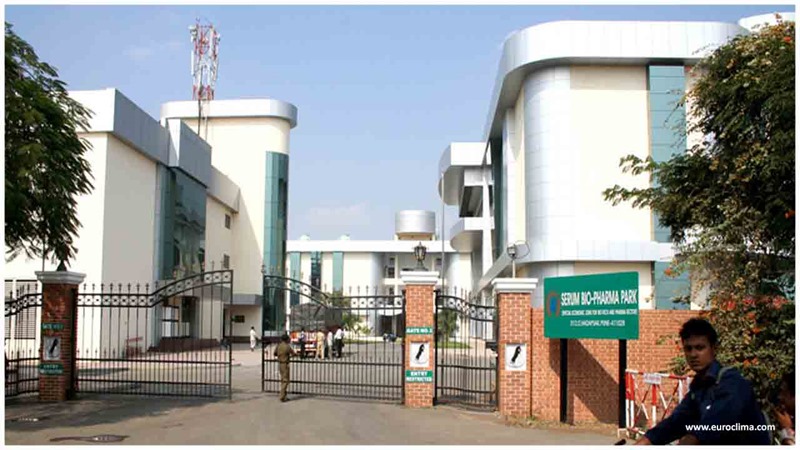India’s vaccine diplomacy drive which has become the toast of the town in many a world capital, has much to thank the Parsis – a tiny community which migrated from ancient Persia to India’s western shores some 12 centuries ago.
Billionaire Adar Poonawala and his father Cyrus took the leap of faith in the early days of development of the Oxford University – AstraZeneca vaccine and agreed to invest in a huge facility in the west Indian city of Pune to make a billion doses of the vaccine for the world market. In times to come that decision by the horse fancier father and son duo will surely be regarded as one of ‘daring entrepreneurship.’
Article by Jayanta Roy Chowdhury | The Daily Sun
“The Pharmacy of the World will deliver to overcome the Covid challenge,” tweeted India’s Foreign Minister S. Jaishankar as the flights to foreign capitals delivering India’s first lot of vaccine gifts took off earlier this month. He might as well have added with help from the Parsis.
When the vaccines from Poonawala’s Serum Institute factory started shipping out, they were ferried by refrigerated trucks manufactured by another celebrated Parsi tycoon family – the house of Tatas. The airline which flew out the first lot of vaccines to Bhutan, Maldives and Bangladesh bore the logo of Air India, a state-run carrier launched by a former chairman of the Tata Group, the late JRD Tata.
Among the other airlines which have been pressed into service shipping the vaccines are the Tata-run Vistara Airways and another Pasi family, the Wadias, run GoAir. The Parsis who number fewer than 1 lakh people have a larger than life, imprint on India’s social, educational, cultural, military and economic life.
The man who told Lt. Gen. AAK Niazi in December 1971 that he was “surrounded by land, air and sea” by Indian and Bangladesh forces and demanded that Niazi and his troops surrender or “we wipe you out”, was none other than Gen. (later Field Marshall) ‘Sam’ Maneckshaw, the brilliant military tactician who was India’s Chief of Army Staff during the Liberation War.
He was not the only Parsi who helped the cause of freedom. Long before Manekshaw was born, Indian nationalism and the demand for India’s independence was defined in the late 19th century by another towering leader from this community – Dadabhai Naoroji, hailed by many including Mahatma Gandhi as the ‘Grand Old Man of India’.
Independent India’s drive to build its nuclear capacity, was also led by another brilliant Parsi – nuclear scientist Homi Nusserwanji Sethna – who led the efforts which culminated in India exploding its first nuclear device in the deserts of Rajasthan in 1974, three years after being threatened by the nuclear capable US 7th fleet at the height of the Bangladesh Liberation war.
To come back to our tale of India’s vaccine diplomacy, the ‘Covidshield’ vaccine manufactured at Adar Poonawala’s factory have been sent as India’s “supplies under grant assistance” to all neighbouring countries including Bangladesh, Nepal, Myanmar, Afghanistan, Sri Lanka, Mauritius and Seychelles. The sole outlier remains Pakistan which has opted for a Chinese vaccine.
While India’s vaccine flights were not aimed at displacing rival gifts from China to its neighbours, the fact remains that most nations in South Asia seem to have preferred Oxford-AstraZeneca to China’s Sinovac.
The shipments began within 72 hours of India starting its own inoculation drive to cover some 300 million of its most vulnerables – doctors, nurses, policemen, journalists, people over 50 years of age and those with prior diseases- by August this year.
Besides gifts, sales contracted often with help from South Bloc where India’s Prime Minister and Minister for External Affairs have their offices, to nations across the globe from Brazil to Morocco to South Africa and Saudi Arabia, have made Poonawala a worldwide household name.
Brazil which had earlier started out with a Chinese made vaccine changed course and in late January opted for Indian made AstraZeneca vaccines. The South American giant nation’s President Jair Bolsonaro is believed to have sought his friend Indian PM Narendra Modi’s assistance in getting the coveted drug. Post shipment flights, Bolsonaro tweeted ‘Dhanyavad’ (thanks) with a picture of legendary monkey warrior Hanuman carrying medicines to Brasilia !
Ambassadors of some 100 countries were flown down to Pune, for an on-site visit in early December, to help those nations make up their minds on placing orders and Poonawala’s factory will over the coming months indeed be a pharmacy for the world.
The Oxford-Astra Zeneca vaccine is made from a weakened version of a common cold virus extracted from chimpanzees, modified to look more like coronavirus and is one of two candidate drugs allowed by the Indian drug regulators to be used for emergency vaccinations.
At an average of $3 a dose, the billion doses to be made by Serum Institute, represents just $3 billion in revenues, small change for the global medicine industry which has revenues running into hundreds of billions of dollars. However, the diplomatic gains for India from the success of Poonawala’s entrepreneurial gamble could perhaps only be described as ‘immeasurable’.
The writer is senior Indian journalist based in New Delhi

